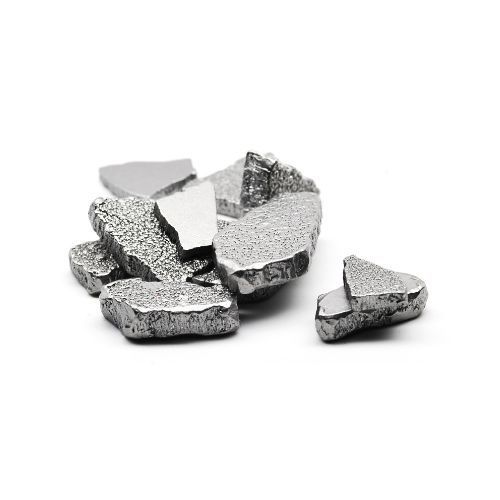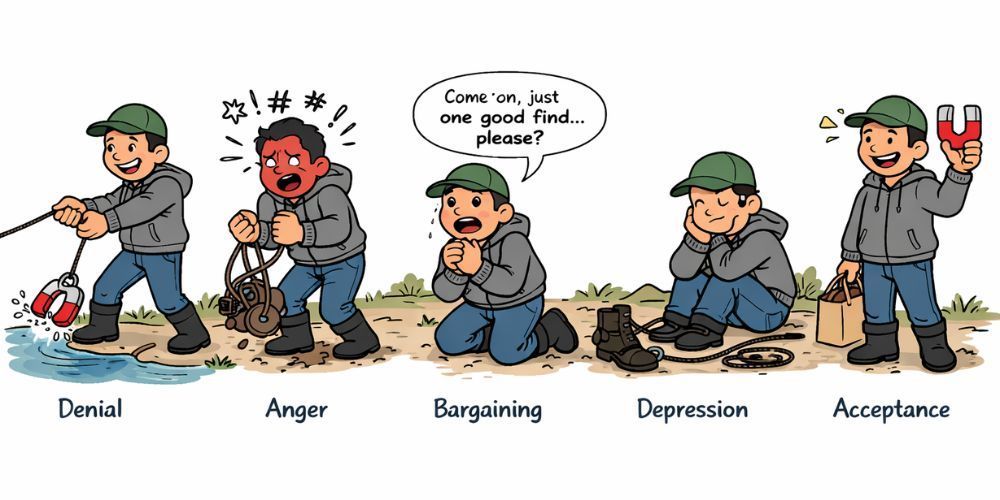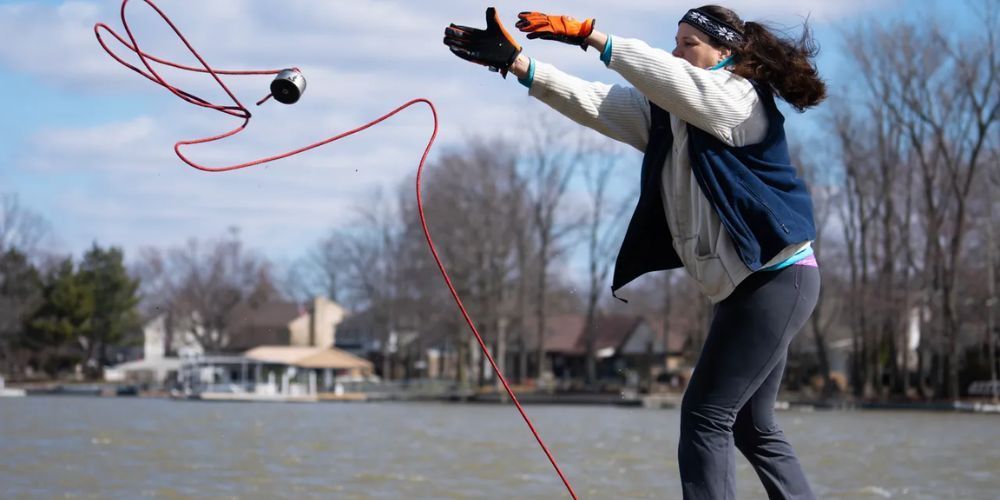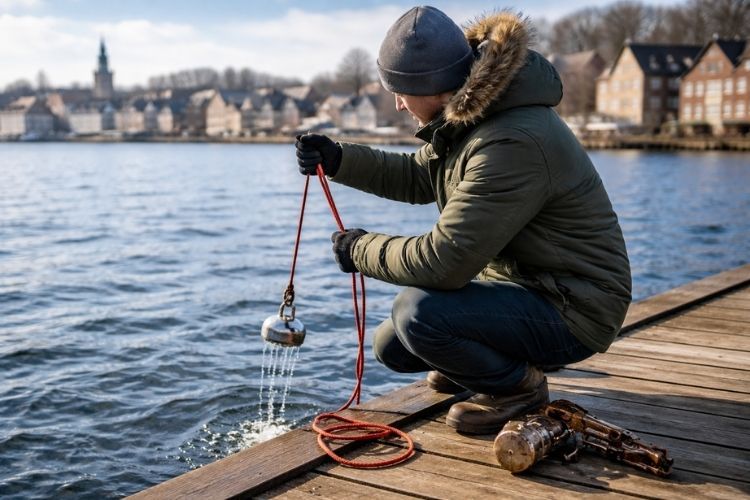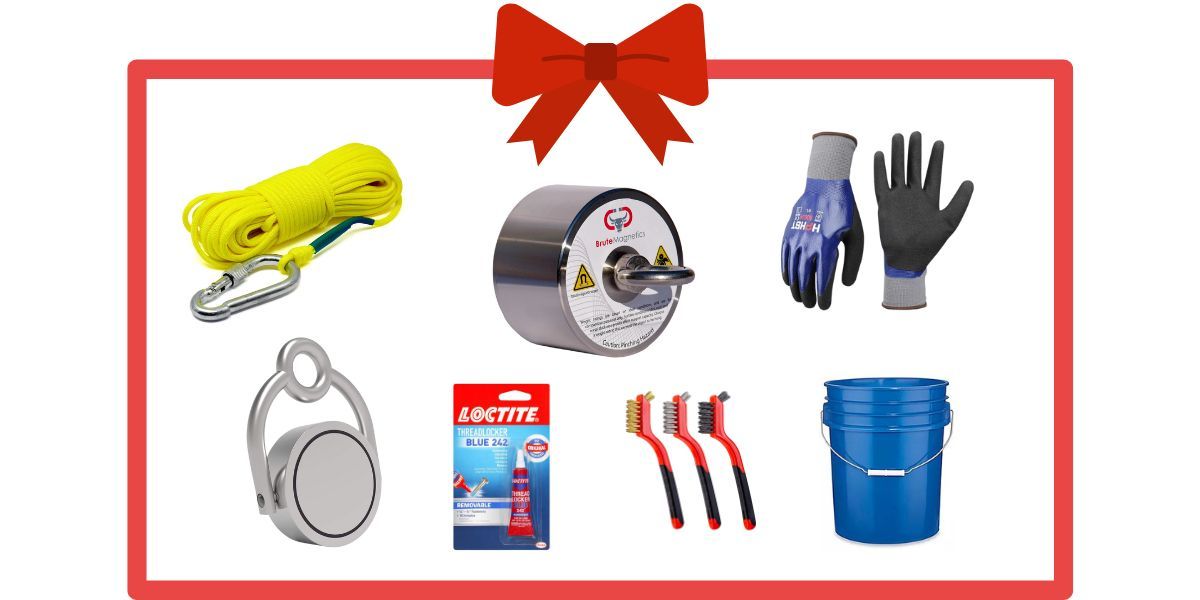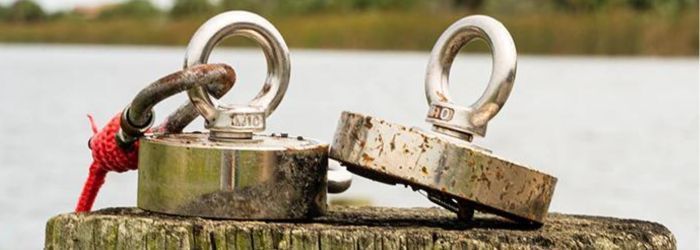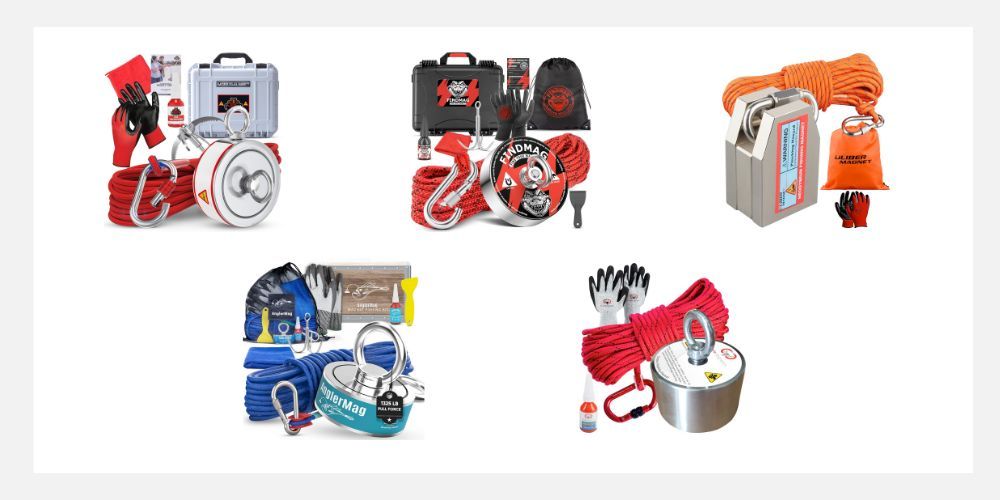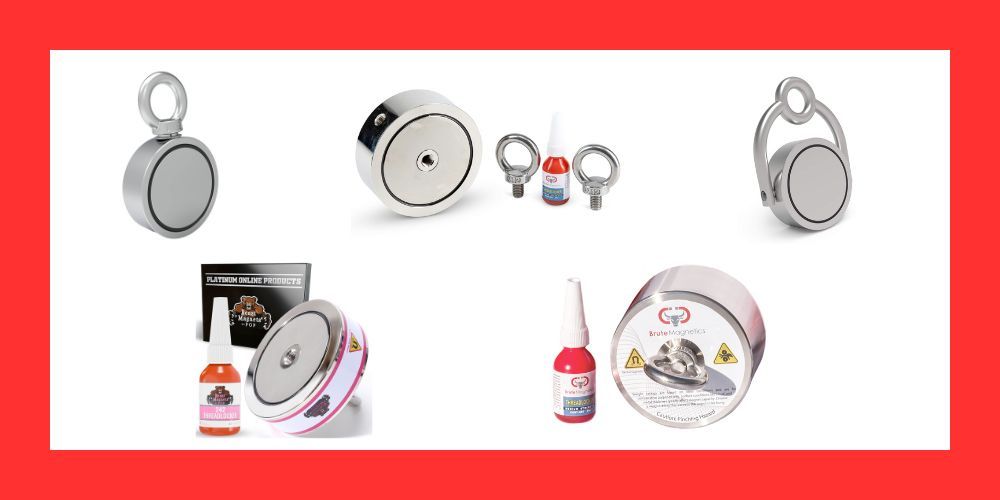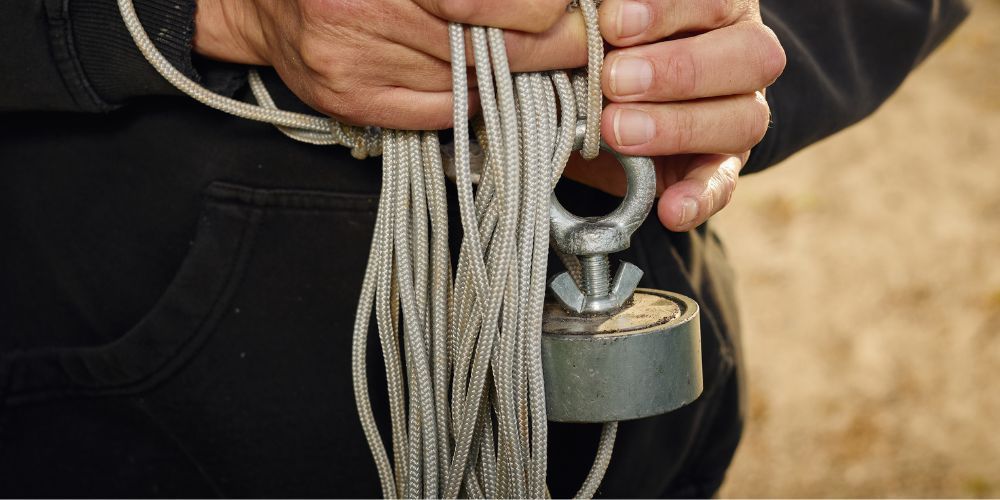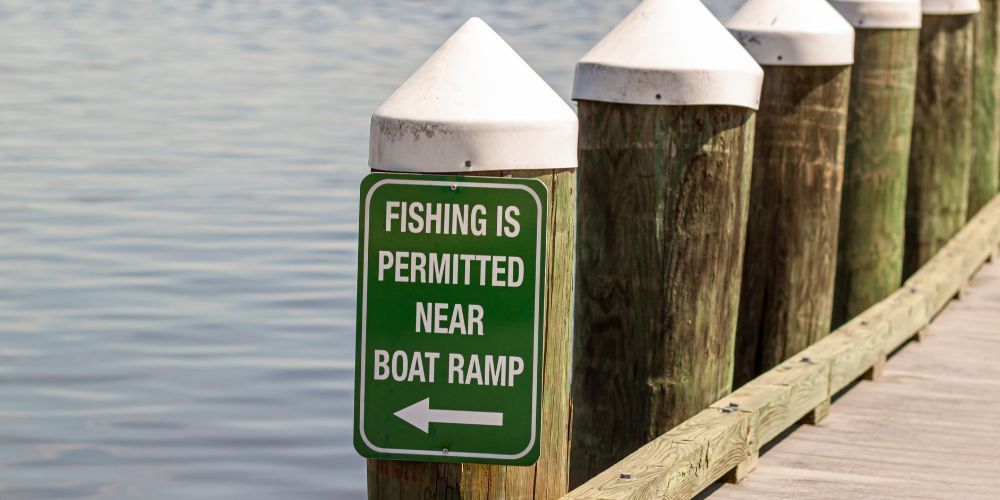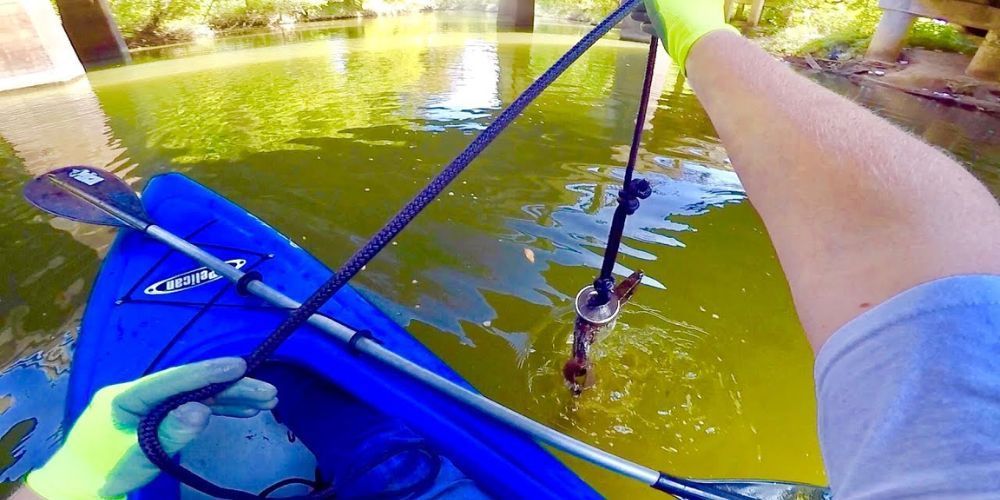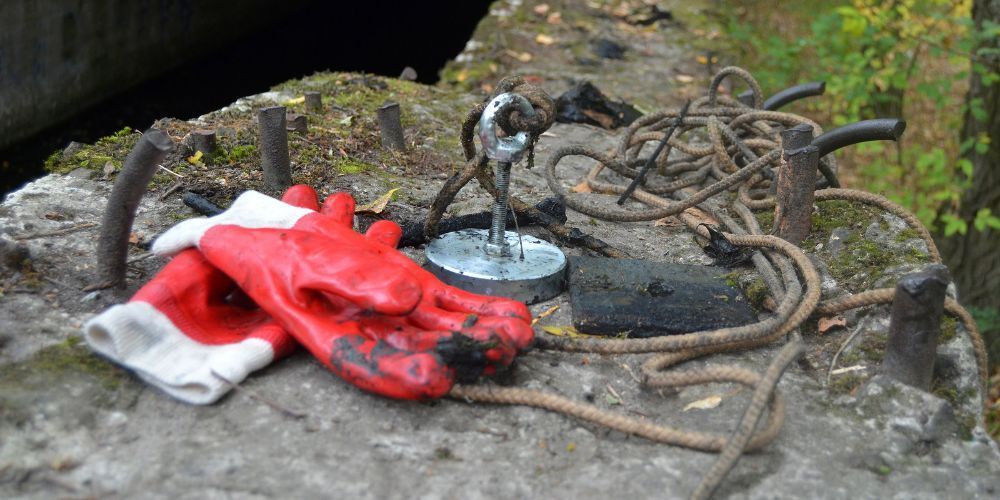Magnet Fishing & Magnetic Metals: What Sticks and What Surprises You’ll Find
Magnet fishing is a mix of treasure hunting, mystery, and good old-fashioned curiosity. There’s something exciting about tossing a magnet into the water and never quite knowing what you’ll pull up. Maybe it’s an old bicycle, a rusty safe, or even something with a bit of historical value!
But if you’ve ever tried magnet fishing, you know that not everything in the water will stick to your magnet. Some objects come up easily, while others stay hidden below, refusing to attach.
That’s where understanding which metals are magnetic and which aren’t comes in handy. Knowing what your magnet is actually capable of picking up can help you set the right expectations for your next trip.
In this guide, we’ll break it all down:
- The metals that stick to magnets and why
- The metals that don’t stick to magnets (even though you might wish they did!)
- Real-life examples of magnetic and non-magnetic items you might find
- An FAQ answering some of the most common magnet fishing questions
So let’s dive in and uncover the secrets of magnetic metals!
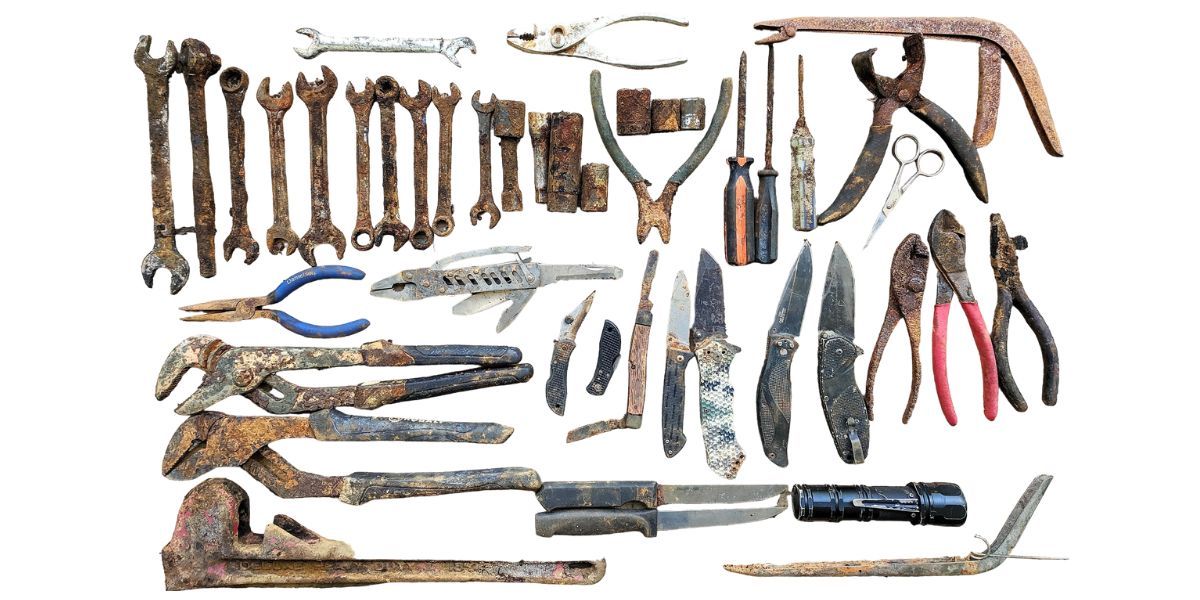
Metals That Stick to Magnets (Ferromagnetic Metals)
If you want to catch something with your magnet, you’ll need to target objects made of ferromagnetic metals—basically, metals that contain iron, nickel, or cobalt. These metals are naturally attracted to magnets, making them prime targets for magnet fishing.
Common Ferromagnetic Metals & What You Might Pull Up
Iron (Fe) – The Magnet’s Best Friend
Iron is the most magnetic metal out there, and because it’s been used for centuries in construction, tools, and weapons, it’s everywhere. If your magnet finds something underwater, there’s a good chance it has iron in it.
What you might find:
- Rusty tools (hammers, wrenches, pliers)
- Nails, screws, and bolts (lots of them!)
- Firearms and knives (yes, really!)
- Cast-iron cookware (old skillets, pans)
- Old railroad spikes
- Scrap metal from bridges, docks, or sunken boats
Steel – Iron’s Magnetic Cousin
Steel is basically iron mixed with carbon and sometimes other metals. Since it still contains a lot of iron, most steel objects will stick to your magnet.
What you might find:
- Bicycles, scooters, and motorcycles (yes, people actually throw these in the water!)
- Car parts (wheel rims, gears, old engine pieces)
- Safes and lockboxes (sometimes still locked…)
- Anchor chains and shipwreck scraps
Nickel (Ni) – Less Common, But Still Magnetic
Nickel isn’t as common in everyday objects, but you might still come across nickel-based items while magnet fishing.
What you might find:
- Some older coins (pre-1942 U.S. nickels, certain Canadian nickels)
- Nickel-plated tools
- Nickel-based magnets (rare earth magnets are sometimes coated in nickel)
Cobalt (Co) – Rare, But Strongly Magnetic
Cobalt is mainly used in high-performance tools and some types of batteries.
What you might find:
- Cobalt drill bits and cutting tools
- Rechargeable batteries (from old power tools or devices)
Everyday Objects That Stick to Magnets
- Keys (if they contain iron)
- Fishing hooks, lures, and gear
- Locks and chains
- Scrap metal and old junk
- Handguns, rifles, and ammo shells (surprisingly common in magnet fishing finds)
Metals That DO NOT Stick to Magnets (Non-Ferromagnetic Metals)
If you were hoping to find gold bars, silver coins, or a fortune in treasure, I hate to break it to you, but your magnet isn’t going to help much. Some of the most valuable metals out there are not magnetic at all.
Common Non-Magnetic Metals & What You Might (Or Might Not) Find
Aluminum (Al) – Everywhere, But Not Magnetic
Aluminum is super common, lightweight, and rust-resistant—but it won’t stick to your magnet.
What you might find (but not with your magnet!):
- Aluminum cans (soda, beer, energy drinks)
- Boat parts and paddles
- Lightweight fishing reels and rods
- Modern coins (most U.S. and European coins today)
Copper (Cu) – Valuable, But Not Magnetic
Copper is used in electrical wiring, plumbing, and some coins. If you do find copper while magnet fishing, it’s probably mixed with something magnetic.
What you might find:
- Copper electrical wires
- Old pennies (pre-1982 U.S. pennies are mostly copper)
- Copper pipes and plumbing fixtures
- Decorative copper jewelry
Gold (Au) – Sorry, No Gold Bars for You
If you were hoping to pull up a pirate’s treasure chest full of gold coins, I have bad news: gold is completely non-magnetic.
Gold items that won’t stick to your magnet:
- Gold rings, necklaces, and bracelets
- Gold coins and bars
- Gold-plated electronics
Silver (Ag) – Also Not Magnetic!
Silver is another valuable metal that will not stick to your magnet. Some silver-plated objects might contain iron, but pure silver won’t budge.
Silver items that won’t stick:
- Sterling silver rings and necklaces
- Old silver coins (quarters, dimes, silver dollars)
- Silverware and antiques
Final Thoughts: What Will You Discover?
Magnet fishing is full of surprises, but understanding which metals are magnetic helps set realistic expectations. While you won’t be pulling up gold or silver, there are still plenty of exciting finds waiting beneath the water—old tools, historic relics, bicycles, safes, and sometimes even lost weapons.
So, grab your magnet, pick a good spot, and see what history is hiding beneath the surface. Who knows? Your next throw might just uncover a forgotten piece of the past!
Happy fishing! 🎣
Author: Will Flaiz



